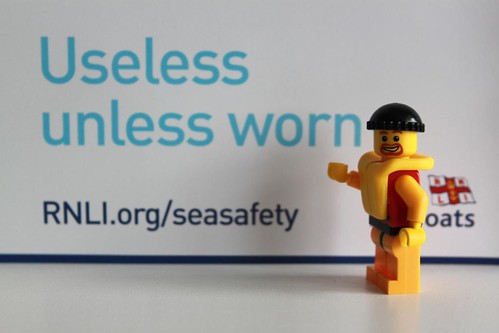
August is obviously the time of year when the Harbour is at its busiest. There are more boats and more people around. The sun shines and the East Portlemouth water temperature is 18°C and rising. So August is when we should think about safety in and around the water.
The Harbour Board has to review safety regularly and even has a designated external examiner (as a university might say) to help with the task. But it’s not easy: as anyone who has drawn up emergency plans will know, they generally collapse at the first sign of trouble. Equally, you can take great care in looking at the major safety risks in a harbour and only to find, when an accident occurs, that you missed the crucial one.
That, of course, is no reason not to try. Salcombe has a large number of small high-speed boats and one of the issues which has proved unbelievably difficult to crack is speeding, which is both dangerous and anti-social. And there have been accidents, including when a fast-moving boat rammed a patrol, seriously endangering the life of those on board. One psychological finding which always makes me smile is that people who had been convicted of speeding (in a car) also pushed their trolleys around supermarkets very fast and collided with others’. I suspect they behave similarly in a boat. This year we could see more of them losing their mooring or banned from the Harbour under a clarified enforcement policy.
Then there are the issues around kill-cords and lifejackets (“useless unless worn”).  Kill-cords, which stop an engine if pulled, are crude, although some more user-friendly versions are becoming available; in the meantime, we will have to stick with the old, slightly fiddly and inconvenient method. On lifejackets, the news is better as they are getting much more comfortable and are available specially designed for every type of watersport, so there are fewer excuses for not wearing one.
Kill-cords, which stop an engine if pulled, are crude, although some more user-friendly versions are becoming available; in the meantime, we will have to stick with the old, slightly fiddly and inconvenient method. On lifejackets, the news is better as they are getting much more comfortable and are available specially designed for every type of watersport, so there are fewer excuses for not wearing one.
Finally, my message about the beaches is the same each year, because this one isn’t obvious. Always remember that even beautifully clear streams flowing across golden sands are likely to be more polluted (with cattle faeces, if you must know) than the sea. So, after having glorious fun damming the streams, children and adults (that includes grandparents who can set an example to others) must routinely wash their hands in the sea before eating lunch or an ice cream. Don’t let a nasty E.Coli wreck your holiday. Have a good one.
Comments are closed, but trackbacks and pingbacks are open.